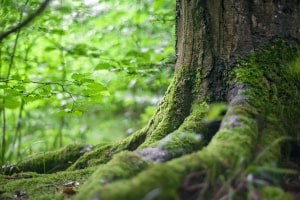This course in ecology and evolution will discuss the basic principles of both disciplines and the theories that accompany them. The two subjects are irreversibly intertwined which you will see throughout the material. Eminent theorists will be studied such as Thomas Robert Malthus who put forward the Malthusian theory of population in 1798 and, of course, Charles Darwin who famously put forward the theory of natural selection in 1859. If we want to know anything about the natural world, we must first explore the past and see where the study of ecology began. Following on from a brief history lesson, the material will take you through an in-depth look at biodiversity and the importance of it in the world. Biodiversity lends itself to many different theories as well as principles that are still applied to the environment today.
In this course, you will discover the rationale behind the ‘emergent principle’, which says that in ecology the whole is greater than the sum of the parts. You will also be taught the evolutionary speed hypothesis, which states that warmer temperatures lead to shorter generation times and increased mutation rates. What are ‘mutation rates’ and what is their impact on different species? The answers to many key questions in the study of ecology and evolution like this are found within the course content, which is laid out clearly and precisely to help you gain deeper understanding and better knowledge.
By completing this short introductory course, you will learn the basics behind ecology and evolution. After this, there are many other complementary courses to expand your knowledge and continue you on a journey of ecological and evolutionary discovery. There are several types people suited to completing this course including those with an interest in the natural world, students deciding on a discipline to specialise in, biologists refreshing themselves on the principles that govern their work and many more. Whether you are interested in pursuing a career in a scientific field or just wanting to know more about the hypotheses surrounding ecology, this course is the place to begin.
What You Will Learn In This Free Course
View All Learning Outcomes View Less All Alison courses are free to enrol, study, and complete. To successfully complete this Certificate course and become an Alison Graduate, you need to achieve 80% or higher in each course assessment.
Once you have completed this Certificate course, you have the option to acquire an official Certificate, which is a great way to share your achievement with the world.
Your Alison certificate is:
- Ideal for sharing with potential employers.
- Great for your CV, professional social media profiles, and job applications.
- An indication of your commitment to continuously learn, upskill, and achieve high results.
- An incentive for you to continue empowering yourself through lifelong learning.
Alison offers 2 types of Certificate for completed Certificate courses:
- Digital Certificate: a downloadable Certificate in PDF format immediately available to you when you complete your purchase.
- Physical Certificate: a physical version of your officially branded and security-marked Certificate
All Certificate are available to purchase through the Alison Shop. For more information on purchasing Alison Certificate, please visit our FAQs. If you decide not to purchase your Alison Certificate, you can still demonstrate your achievement by sharing your Learner Record or Learner Achievement Verification, both of which are accessible from your Account Settings.












 Avg. Hours
Avg. Hours  Contains Video
Contains Video  CPD Accredited
CPD Accredited 
 Total XP:
Total XP: 
 Knowledge & Skills You Will Learn
Knowledge & Skills You Will Learn 







